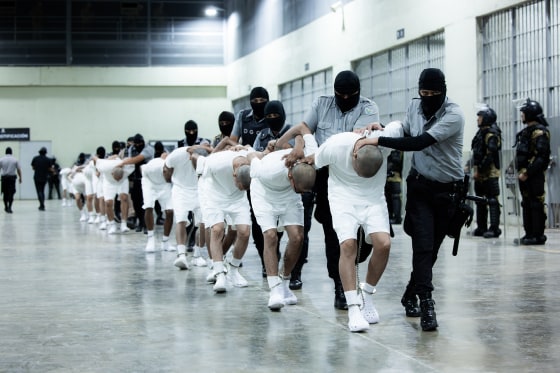Understanding the Changing Political and Security Landscape in El Salvador

El Salvador, a nation at the heart of Central America, has captured widespread global attention in recent years. As political reforms and security challenges reshape the country, El Salvador stands at a pivotal point of transformation. This article explores the key developments shaping the nation’s current landscape, including its governance, security policies, and relationships with international partners.
Political Shifts and Policy Reforms
El Salvador has experienced significant changes in its political sphere. Initiatives targeting crime and public safety have become central to President Nayib Bukele's administration. The country's government has introduced robust measures aimed at reducing gang activity and strengthening law enforcement. These reforms have sparked both domestic and international debate, especially regarding their impact on civil liberties and due process.
International Spotlight: The CECOT Detention Controversy
One of the most high-profile developments involves El Salvador’s Center for the Compulsory Housing of Terrorism (CECOT), the region’s largest maximum-security prison. In early 2025, over 200 alleged Venezuelan gang members were transferred to CECOT, following a cooperation agreement between the U.S. and El Salvador. This move has triggered intense discussions about human rights, U.S. immigration policies, and El Salvador's role as a regional partner.
A recent ABC News report highlighted a federal court hearing where a judge questioned officials over the detainees’ fate and the transparency of the process. The court delved into whether detainees received appropriate legal notice before transfer and if the United States maintains a level of constructive custody over individuals housed in El Salvador's prisons. This case underscores the complexities of international legal cooperation and accountability.
In addition, NBC News analyzed how statements from both U.S. and Salvadoran officials complicated the legal arguments concerning custody and responsibility. The discussion also addressed how U.S. funding, estimated between $4 million and $6 million, supports El Salvador’s detention operations, raising questions about sovereignty and oversight.
Security Initiatives and Public Response
El Salvador’s security strategies have yielded a mixture of praise and criticism. The government argues that tough measures have helped reduce crime and restore public safety. However, various international organizations and legal experts caution that safeguarding human rights is essential while pursuing security objectives.
Efforts to modernize law enforcement, enhance border controls, and cooperate with foreign agencies reflect El Salvador’s determination to tackle transnational threats. The ongoing debate illustrates the inherent challenge in balancing national security with the protection of due process and civil liberties.
Looking Forward: El Salvador’s Regional and Global Role
The world is watching as El Salvador navigates shifting political tides and security demands. The country’s approach to policy, partnership, and reform carries implications for its international reputation and domestic stability. For observers and stakeholders, understanding El Salvador’s actions in context is crucial to appreciating its broader impact on Central America and beyond.
El Salvador’s evolving story offers lessons in governance, diplomacy, and the ongoing quest for security in a changing world. Keeping informed through reputable outlets and ongoing legal proceedings will be key to navigating this complex landscape.